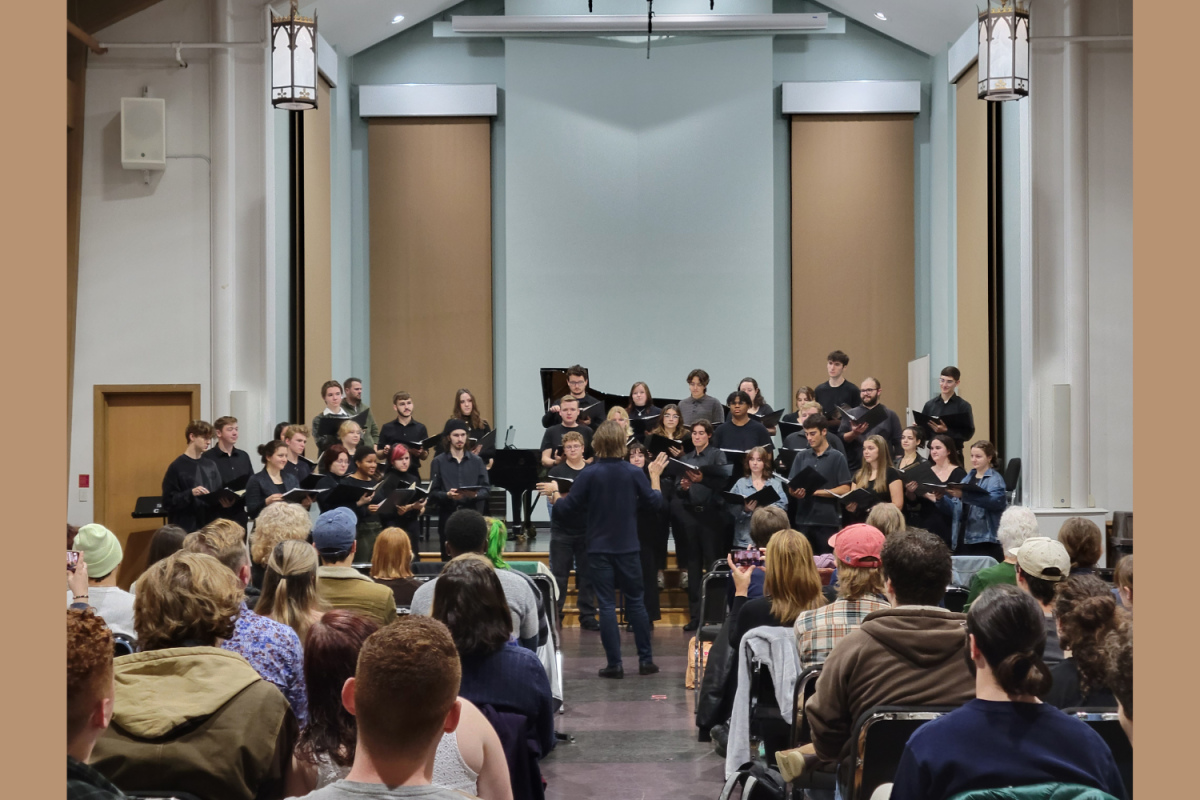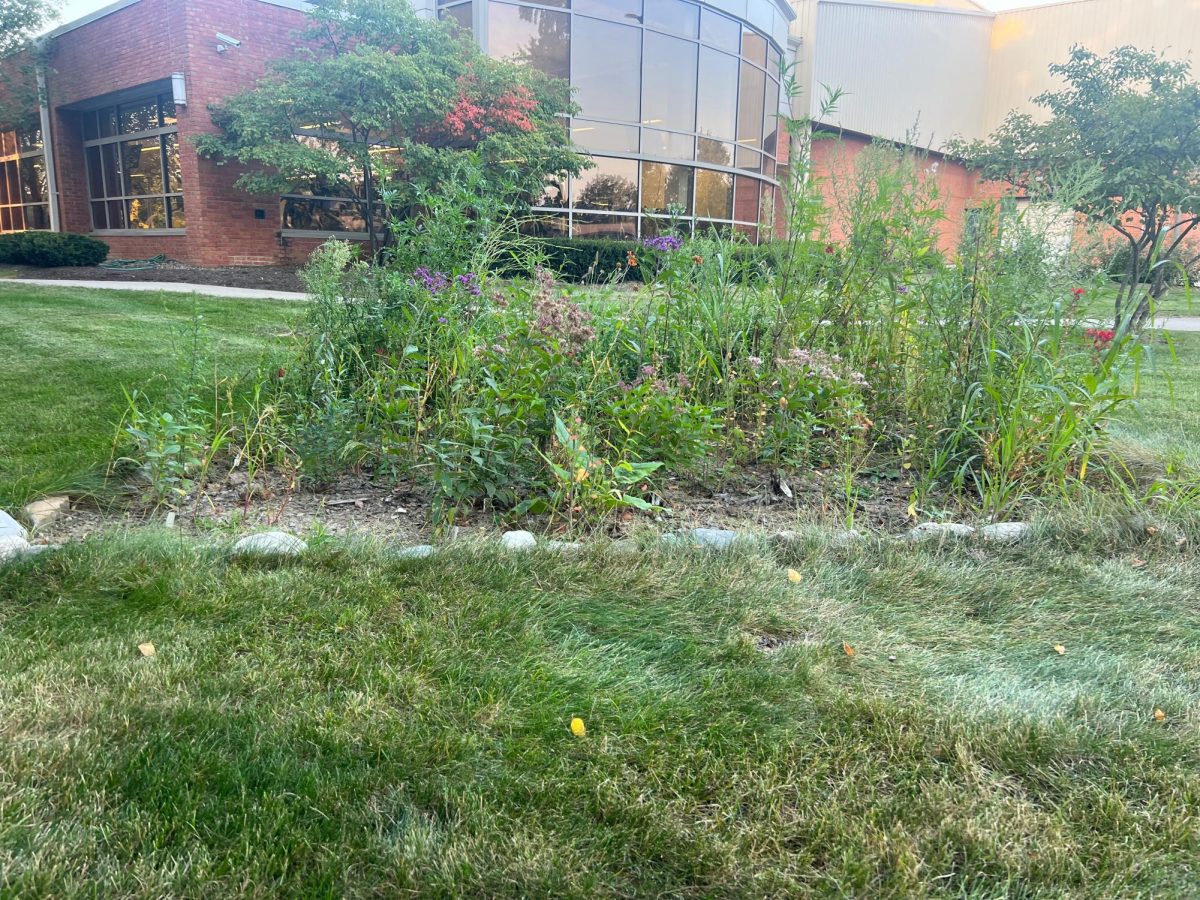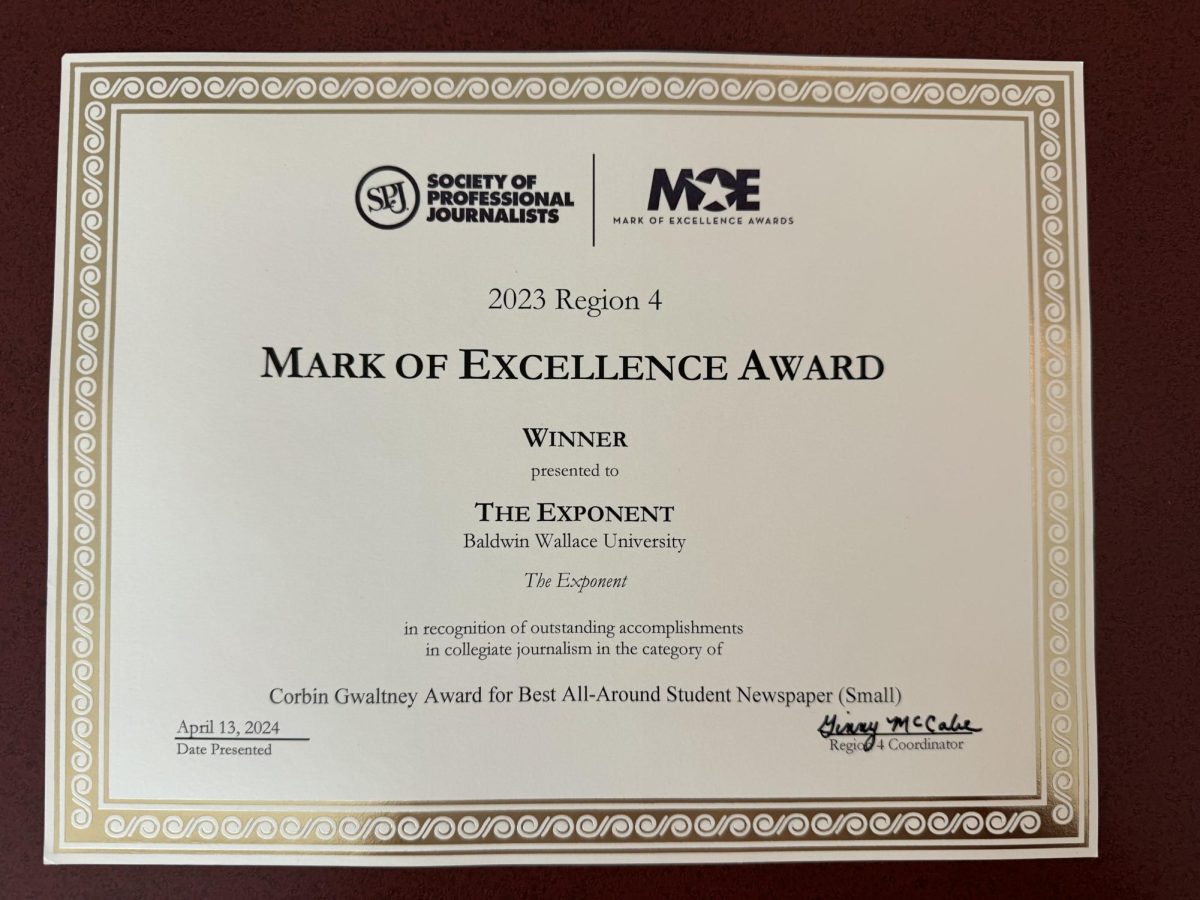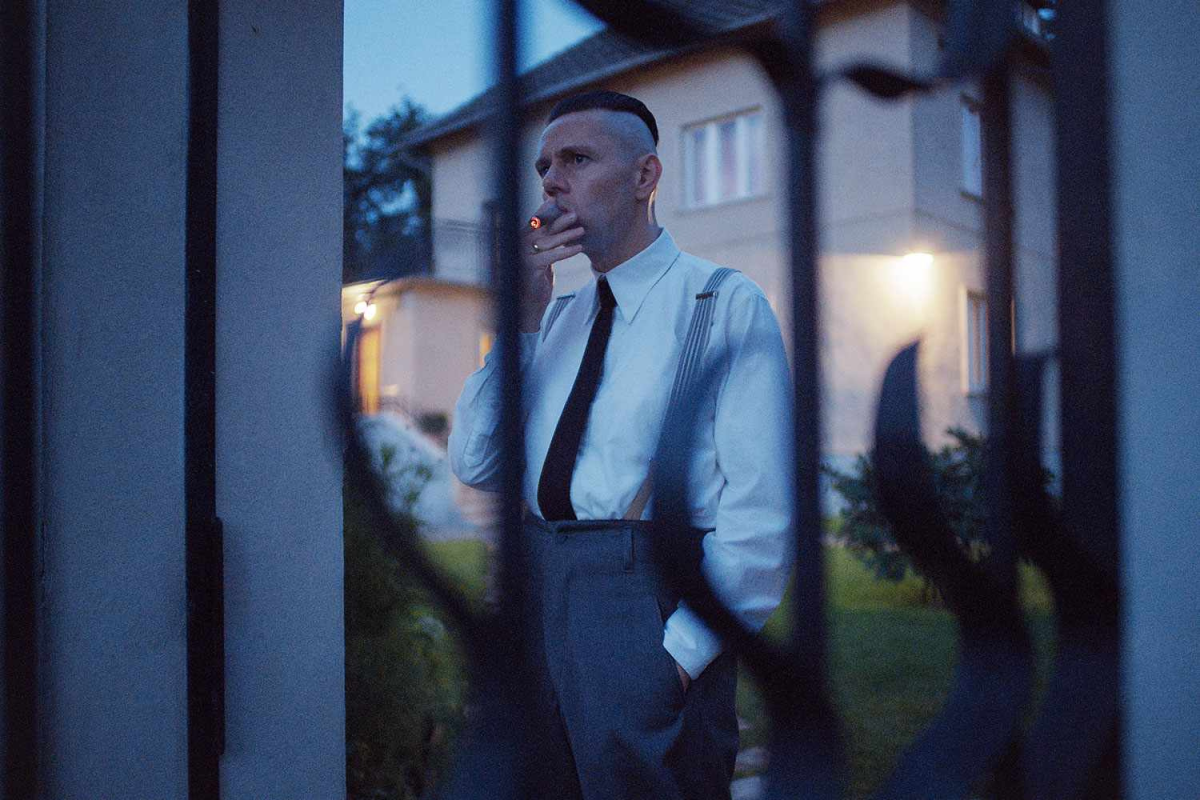In collaboration with his series with the Cleveland Orchestra Chorus, composer-conductor Eric Whitacre made a stopped by Baldwin Wallace Oct. 20 for a Q&A session with students about the journey he has been on throughout his career.
Whitacre is a renowned composer from the modern era, with compositions such as “Godzilla Eats Las Vegas!” and “Water Night.” He has also worked alongside other composers such as Hans Zimmer.
Despite Whitacre’s accomplishments, Jami Lercher, the assistant professor of choral music education said that Whitacre is “digestible in any way.”
“I have worked with him many times, and he is always an amazing speaker. Despite his rockstar status, he’s very kindhearted and generous to talk to,” Lercher said. “He isn’t set on a pedestal.”
Before the Q&A began, Whitacre opened with a surprise performance of his piece “Sing Gently,” performed by the BW Motet Choir and conducted by Whitacre.
Whitacre went on to speak about his experience, including his undergraduate introduction to music, as he said that he did not start out as a musician during his childhood, his acceptance to The Julliard School and his many stories working with composers such as Hans Zimmer.
Throughout the Q&A, students and professors asked him questions related to the industry, including the way he composes and the advice he has for dealing with stress and burnout. Whitacre included many physical examples, such as playing sections of his pieces on the piano and revealing his process for creating music.
His current stay with Cleveland involved a workshop with the Cleveland Orchestra Chorus on his piece “The Sacred Veil,” a twelve-movement work in collaboration with Charles Anthony Silvestri as the lyricist. The piece follows the real event of Silvestri’s wife passing away from cancer. The composition follows their love, the loss and the feelings of solace afterwards.
“He often speaks about art and the human condition. Music is universally engaged, and Whitacre puts a finer point on how his music can fit into its realm and how classical can act in a similar way. It enriches us and serves a purpose for us” Lercher said.
The concert also opens with Reena Esmail’s “When the Violin,” a piece based on a fourteenth century Persian poem about the search for tenderness in a time of sorrow.
“He’s the closest thing to a rockstar for this genre,” Clint Needham, the professor of composition and the composer-in-residence of the Conservatory, said.















































